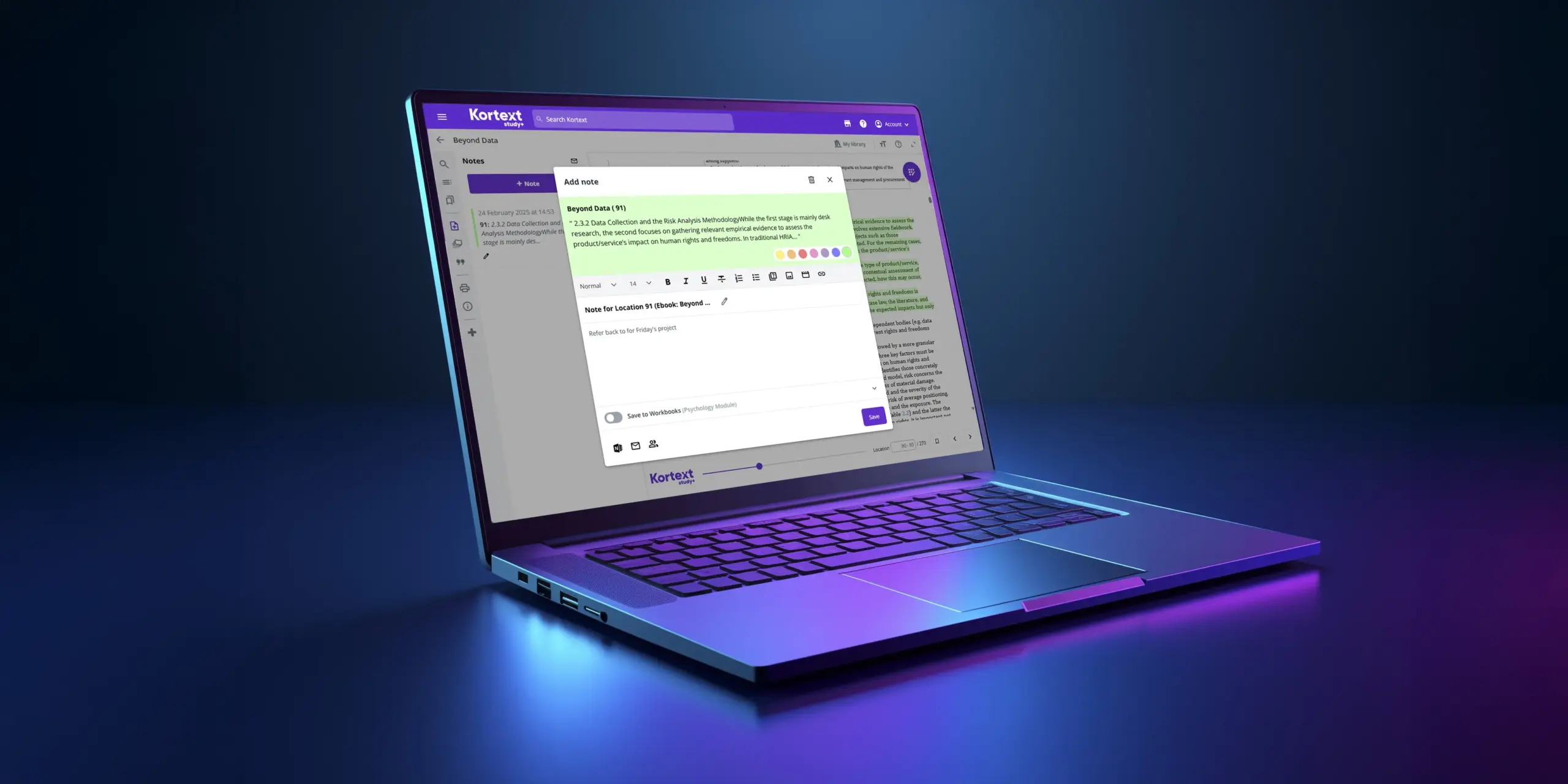Kortext Winter Webinar 2023 – our round-up
The Collins Dictionary named ‘AI’ as their word of the year for 2023. AI has certainly been a topic of much debate in higher education, sparked by the launch of ChatGPT on 30 November 2022.
On 12th December, we held our winter webinar – ‘Generative AI: a year in’ – looking at where the sector is now and what the future might hold. It’s clearly an issue that resonated with you, as we were joined by over 120 attendees from across the higher education community.
During the webinar, we heard about what generative AI has meant in practice for one university and we explored future developments with our expert panellists. Plus, a lucky attendee won cupcakes for their team!
Generative AI 12 months in – where are we now?
Our host, Robin Gibson (Director of External Affairs, Kortext), opened the webinar with an overview of the last 12 months.
Robin noted that usage of generative AI represented one of the fastest technology take ups in human history. Indeed, within two months ChatGPT had attracted 100 million users, leading to significant industry responses, such as Microsoft’s $10 billion investment in its parent company, OpenAI.
At first, there was hesitancy in the higher education sector regarding the new generative AI tools, but this has shifted towards a mostly favorable stance, with the Russell Group defining principles for the responsible use of AI in education. Yet, a recent study found that less than half of top universities worldwide have publicly available guidelines on AI use.
Meanwhile, the use of generative AI by students is widespread. In a focus group, students reported using tools extensively on a daily basis, but said they were unclear on appropriate usage and expressed concern about the accuracy of information generated.
“Most people we know have used AI to complete marked academic work.” ; “But it’s not always clear if we should be using AI at uni … or how to use it correctly.” ; “We also know that AI isn’t 100% accurate all of the time.” Anonymous focus group completed with undergraduate students.
Robin demonstrated how Kortext, in partnership with Microsoft, has leveraged Azure GPT4 Turbo technology to create Kortext Premium – a secure AI solution for higher education.
Unlike open AI tools, Kortext’s AI-powered study tools operate in a ring-fenced environment, only accessing academic content on the Kortext platform.
What does generative AI mean in practice for a UK university?
Following Robin’s overview, Matthew Lawson (Director of Library and Student Support, Middlesex University) shared insights on his institution’s ‘tentative steps in using AI’.
“… there was that moment when suddenly ChatGPT was the only thing that everybody was talking about …” Matthew Lawson.
Matthew outlined AI-related challenges and opportunities for teaching and learning across the sector, then explained the Middlesex approach thus far.
This has included setting up a cross-institutional working group on AI, aligning with the Russell Group principles, establishing clear guidelines for staff and students, and having a joined-up approach to messaging across the university.
He highlighted the importance of libraries and librarians in addressing AI literacy, academic integrity and plagiarism in relation to generative AI tools.
“… librarians have a really strong history in teaching information literacy. So upgrading that … to AI literacy, will help students do well at university, but also give them those graduate competencies, which are going to help when they go out into the workplace.” Matthew Lawson.
Lastly, Matthew spoke about the successful implementation of an AI guide bot, Harper, in student support services at Middlesex, reporting increased efficiency and student satisfaction. He rounded up by touching on broader applications of AI, acknowledging its impact on all aspects of university life.
Discussion panel: what does the future look like and how can we shape it?
The highlight of the webinar was undoubtedly the discussion panel. Our expert panellists were:
- Matthew Lawson
- Professor Janice Kay CBE (special advisor to the Vice-Chancellor at the University of Exeter and TEF committee member)
- Chris Green (Chief Digital Officer, University of Lincoln)
- Rachel Scott Halls (Director of Library and Archives, Buckinghamshire New University)
- Laura Dolata, (student, University of Essex)
- James Gray (CEO and founder, Kortext).
The panel discussed the anticipated impact of generative AI on teaching and learning in the next five years. While opinions varied, there was a consensus that AI would profoundly impact education, with differing views on the extent and speed of transformation.
Next, they explored likely applications of generative AI within higher education. The panellists envisioned personalised AI assistants becoming prevalent, with the potential for tailored learning pathways. There was also excitement about opportunities for deeper, more experiential learning.
The discussion expanded to encompass broader implications for universities, emphasising the need for effective leadership and skills development. The panellists anticipated varying adoption levels of generative AI across the sector due to differing policies and financial constraints.
The impact of generative AI on academic libraries was discussed, with insights into the evolution of textbooks, the atomisation of content, and the opportunities for librarians to get more heavily involved with curriculum development around the critical use of information.
Overall, the panel expressed excitement and apprehension, emphasising the need for active engagement, breaking down institutional silos, and adapting approaches to maximise the benefits of generative AI tools in higher education.
Education technology and AI: what’s next?
In the last segment of our webinar, James and Andrew Bates (Chief Product Officer, Kortext) outlined Kortext’s platform and AI developments.
James explained how Kortext’s digital learning solutions align content, student experience and data analytics for better outcomes. He explored the interplay between learner engagement, educational gain and the evolving role of AI in each of these areas.
“… a seamless journey from discovery through to content use and an ability for a student to leverage that in terms of their own individual learning …” James Gray.
Andrew set out Kortext’s guiding AI design principles: transparency, bias mitigation, ethical data use, inclusivity, community feedback and iterative development. He touched on Kortext’s plans to further develop AI-powered tools to enhance student, academic and library experiences.
The importance of partnership
As a final point, we’re picking up on a thread running throughout the webinar: partnership between all stakeholders in the higher education sector will be essential to encourage innovation, develop responsible practices, and ensure equitable access to generative AI tools.
“I think it’s going to involve working together in partnership based upon the evolution of the technology, and understanding the engagement that occurs with it.” James Gray.
Lastly, the moment we were all waiting for, the winner of our prize draw was announced… drum roll please… congratulations to the cupcake winners – the library team at the University of Liverpool!
To request a recording of the webinar, please email: marketing@kortext.com






